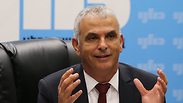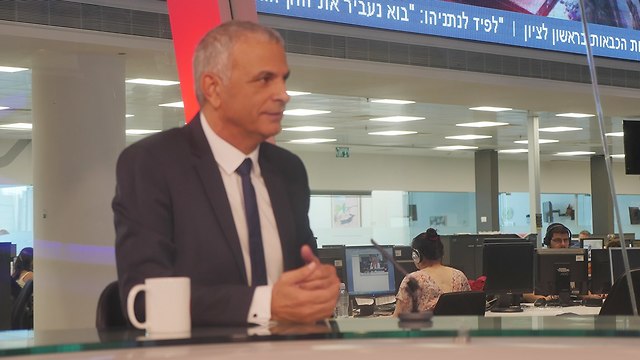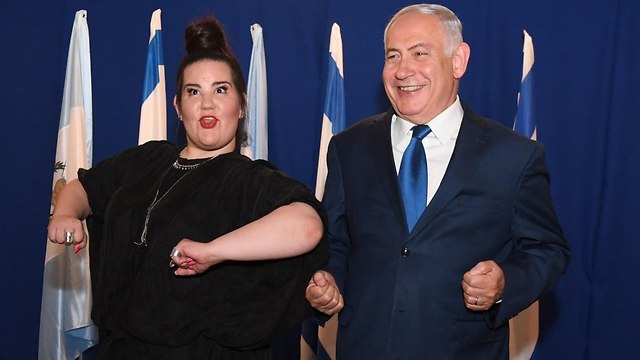
Kahlon says Eurovision might not happen, depends on IPBC
The finance minister says the government has no intention of assisting the Israel Public Broadcast Corporation in funding the production of the Eurovision Song Contest; Kahlon: 'If the IPBC does not want to host it, the Eurovision will not happen.'
"The corporation has made a grave mistake. It has to manage its affairs like any other government body. Its attempts to tie the situation to politics are erroneous. They are able to transfer the sum in a minute. If they do not transfer the guarantee, they will make a grave mistake, which will be contrary to the rules and regulations," stressed Kahlon in an interview with Ynet.
The Finance Minister went on to say that there is no justifiable reason for 2019 Eurovision not to be held in Israel.
"There is no reason why the contest shouldn’t be held in Israel. The situation is a result of a professional fight between those in the IPBC and the treasury … the IPBC is a government body, it is financed by the taxpayers' money and it has to operate according to the rules and regulations," he concluded.
The IPBC issued an immediate statement addressing Kahlon’s remarks.
"We have been saying all along that the IPBC is unable to foot the bill of the production cost. If the government decides to finance it, the Eurovision will be held in Israel. The IPBC once again urges the decision makers to sit down and reach an agreement over budget with the treasury,” read the official statement.
"The finance minister also insisted he has no intentions of interfering in the affairs of the IPBC, suggesting the company is capable of solving the crisis on their own.
"There is no reason for intervention … They need to do what everyone else does, what's the story here? Suspect my commitment? I almost broke up the coalition and put my political career on the line in order for IPBC to be established … The only politicians in this story are the IPBC people. Whether the Eurovision will be held in Israel depends only on the IPBC, and there is no one stopping them. If the IPBC does not want to host it, the Eurovision will not happen,” he emphasized.
The production cost of the Eurovision in Israel is estimated at 35 million euro, and the IPBC was supposed to transfer the guarantee to the EBU by August 1.
The EBU has agreed to give the IPBC an extension until August 14, but the issue of where the money will come from has not yet been resolved.
Israel won the 2018 Eurovision Song Contest with Netta Barzilai's "Toy," granting it the right to host next year's competition.
But despite his enthusiasm over the win, the prime minister refuses to allocate a budget for the competition, arguing the money should come from the IPBC's annual budget.
"The prime minister and the finance minister have decided a body budgeted at the enormous amount of NIS 750 million at the expense of the public can find the funds for a guarantee for the Eurovision. The IPBC is being wasteful and trying to sabotage the Eurovision," a source close to Netanyahu said.
The IPBC, meanwhile, claims it would not be able to take the money out of its own budget unless it fires 200 employees or cuts down on original productions.
The IPBC explained that its budget is "completely transparent and covers, by law, diverse activity in three TV channels, nine radio stations and additional online activity."
The finance minister also addressed the prime minister’s statement on Sunday suggesting that he will announce a snap election if a solution to the IDF Draft Law is not found.
"I do not see how this problem can be solved. Litzman says, 'If you do not change it, I will resign.' Lieberman says, ‘If you change it, I will resign.’ I believe both of them, which is why I believe that the Knesset will be dispeerd at the beginning of a winter session.
"I think that politically, no one wants snap elections … Everyone would have prefered to drag this out until the next term ... Politically … I am committed to the coalition agreements. I am comfortable, I know what I signed and what I will approve,” Kahlon concluded.












